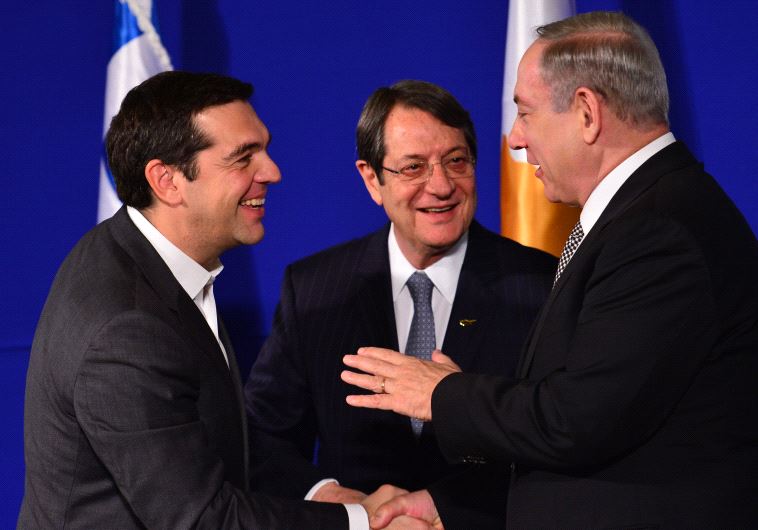Israel, Cyprus and Greece ties forge ahead with trilateral rescue unit
Israel PM Netanyahu, Greek PM ALexis Tsipras and Cyprus President Anastasiades agreed on the new force on a trilateral summit held on Thursday.
 Israeli PM Netanyahu, Greek PM Tsipras and Cyprus President Anastasiades in a trilateral summit(photo credit: KOBY GIDEON/GPO)Updated:
Israeli PM Netanyahu, Greek PM Tsipras and Cyprus President Anastasiades in a trilateral summit(photo credit: KOBY GIDEON/GPO)Updated: